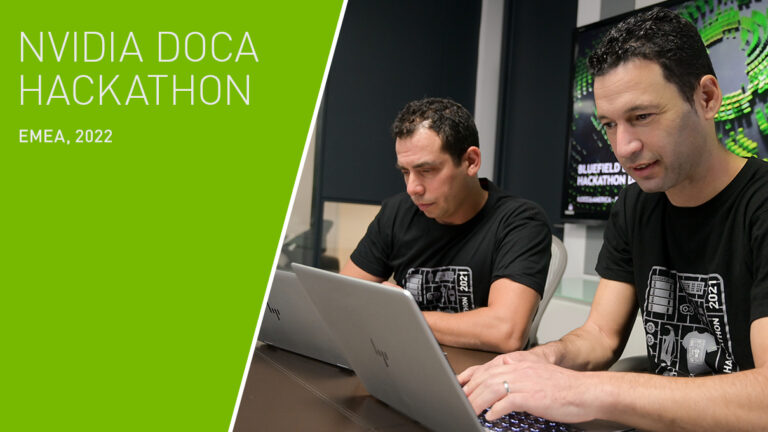 The latest NVIDIA Cybersecurity Hackathon brought together 10 teams to create exciting cybersecurity innovations using the NVIDIA Morpheus cybersecurity AI…
The latest NVIDIA Cybersecurity Hackathon brought together 10 teams to create exciting cybersecurity innovations using the NVIDIA Morpheus cybersecurity AI…
The latest NVIDIA Cybersecurity Hackathon brought together 10 teams to create exciting cybersecurity innovations using the NVIDIA Morpheus cybersecurity AI framework, NVIDIA BlueField data processing unit (DPU), and NVIDIA DOCA.
The event featured seven onsite Israeli teams and three remote teams from India and the UK. Working around the clock for 24 hours, the teams were challenged with developing new solutions for solving modern cybersecurity challenges.
“NVIDIA hackathons are a welcoming launchpad for innovation. We put DOCA and Morpheus developers in the center, providing them with everything they need to bring their ideas to fruition and into the spotlight. We see traction as the DOCA developer community keeps growing, and we believe hackathons play a significant role in that”, said Dror Goldenberg, the SVP of Software Architecture at NVIDIA.

NVIDIA Cybersecurity Hackathon winners
First place
Team Yahalom, C4I Unit
The Yahalom team created a next-generation load balancer that supports dynamic node addition or removal and load-balancing based on user-defined fields.
The design uses BlueField DPUs as a tailor-made network device, implemented with NVIDIA DOCA FLOW APIs. Using the DPU results in accelerated throughput at scale.
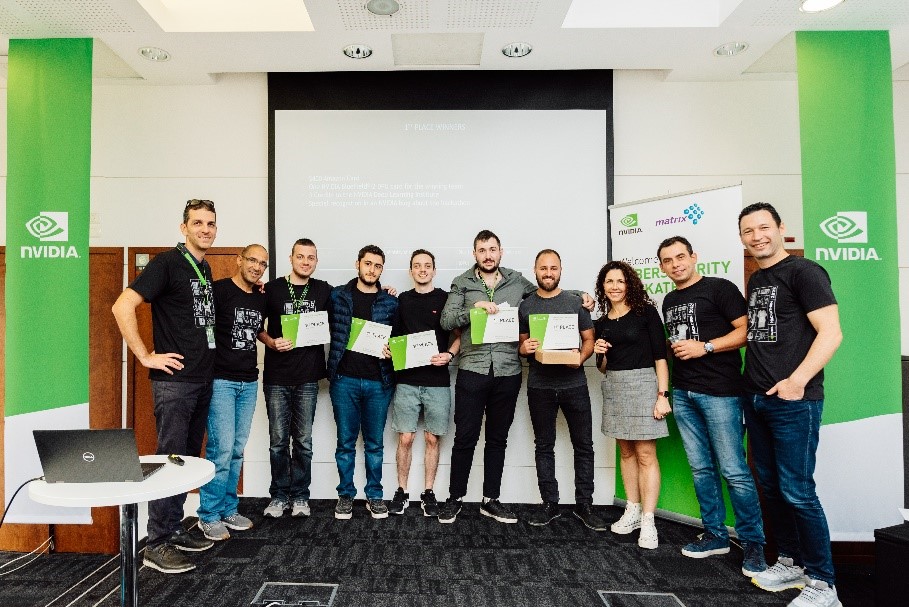
Second place
Team GAPU, Ministry of Defense with Octopus Computer Solutions
Team GAPU focused on developing a new layer of security and governance on the DPU between the platform and infrastructure. This delivers a modular and scalable first line of defense against malicious packets, including a 5-tuple firewall, DNS filtering, and deep packet inspection.
Named ARMadillo, after the BlueField Arm-based cores and the protective shield of the animal, the solution uses DOCA FLOW. ARMadillo accelerates security workflows and illustrates offloading security workloads from the host CPU and memory to the DPU.
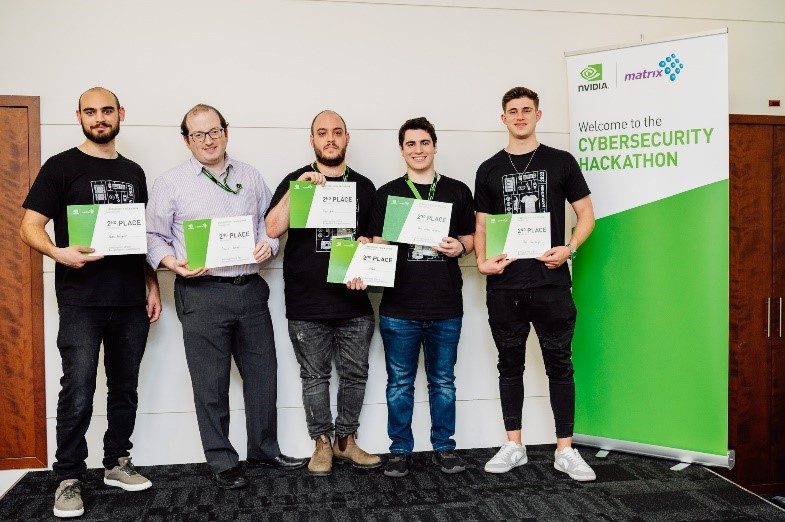
Third place
Team Ariel-2, Ariel University
This team worked on a malware-encrypted traffic detection solution based on Morpheus and GPU acceleration. Using deep learning, the team created a Morpheus training model using random forest (an ensemble learning method for classification), regression, and other tasks. The model operates by constructing a multitude of decision trees at training time, on a variety of datasets.
The team selected meaningful attributes from each dataset into the model, to classify malicious data, albeit encrypted. The team demonstrated efficient machine learning tasks and lowered AI training costs using Morpheus and GPU acceleration.
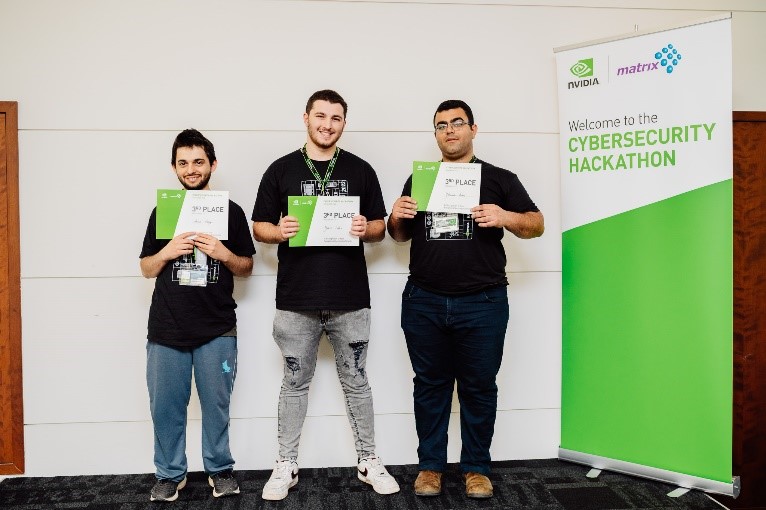
Honorable mention
Team 8200-2B, Aharai-Tech organization
Team 8200-2B, was composed of a group of high-school students that take part in the tech-leadership organization Aharai-Tech. The group worked on a cybersecurity solution that identifies malicious log-in attacks in real time. This is a marked improvement to most existing solutions that identify a breach after it has occurred.
The team used Morpheus pipelines for filtering, processing, and classifying large-scale data.
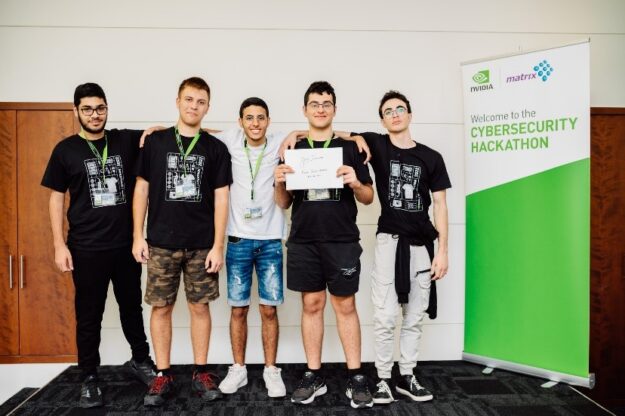
Join the DOCA Community
NVIDIA is building a broad community of DOCA developers to create applications and services on top of BlueField DPUs for efficient data centers.
To learn more about joining the community, visit the DOCA developer web page or register to download DOCA today.
Check the corporate calendar to stay informed or to join our next hackathon.
Resources
- Take the introduction to NVIDIA DOCA for BlueField DPUs course.
- Enroll in the sensitive information detection with Morpheus course.
- Start a discussion on NVIDIA Developer forums.
- Get access to cutting-edge technology through NVIDIA Inception for startups.
